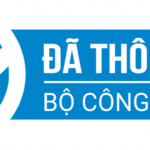In the competitive world of transportation, the caliber of service plays a pivotal role in determining customer satisfaction. Various factors contribute to this standard, including punctuality, vehicle maintenance, and the professionalism exhibited by the chauffeurs. Organizations that prioritize these elements often find themselves at the forefront of the industry, attracting a dedicated clientele.
Ensuring a remarkable experience for passengers involves meticulous attention to detail. From the moment a booking is made until the final drop-off, every interaction shapes the customer’s perception. The ability to adapt to different needs and preferences not only enhances the traveling experience but also builds long-lasting relationships between service providers and clients.
As quality of service becomes increasingly significant, businesses are continually seeking innovative ways to refine their offerings. This dedication to improvement not only fosters loyalty but also sets a benchmark for competitors. A focus on personalized attention and reliability has emerged as a key differentiator in today’s transport market.
Understanding the Range of Vehicle Options Available
When considering transportation solutions, a diverse selection of vehicles can significantly enhance logistics efficiency. Clients can choose from various options tailored to specific needs, ensuring that every requirement is met with precision. From sedans to larger vans, each vehicle is selected to optimize performance tracking and meet delivery expectations.
Client testimonials often highlight the advantages of utilizing specialized vehicles, showcasing how service quality directly impacts satisfaction. Each option is equipped with knowledgeable operators who understand the vehicle’s capabilities, providing client-focused solutions to ensure safe and timely transport.
The commitment to skilled labor in this sector is apparent, as professional teams are trained in the nuances of each vehicle type. This expertise not only assures safety but also enhances the overall logistics experience. For those seeking comprehensive delivery options, the portfolio of choices available is a significant asset. Visit https://monarchmoversgroup.com/ to explore more about how various vehicle selections can meet your transportation needs effectively.
Evaluating Qualifications and Training Programs for Skilled Operators
In the logistics industry, the caliber of the workforce is paramount. Assessing the qualifications and training strategies adopted by transport providers directly influences service quality and delivery expertise. Companies that prioritize investing in their personnel often yield higher logistics efficiency.
Client testimonials frequently highlight the substantial impact of well-trained operators on their operations. Enterprises benefit not only from timely deliveries but also from the assurance that their goods are in the hands of skilled labor. Investing in rigorous training programs ensures that the personnel are well-versed in safety protocols, operational best practices, and customer service strategies.
The commitment to continuous improvement through advanced training initiatives positions operators as true professionals in their field. This focus on developing talent creates client-focused solutions that address specific logistics challenges, ensuring that every shipment is handled seamlessly.
Furthermore, dedicated training fosters a culture of excellence, where operators are empowered with the knowledge necessary to adapt to varying demands. This adaptability contributes to sustained service quality and enhanced delivery outcomes, ultimately fostering long-lasting relationships with clients.
Assessing Safety Protocols in Transport Operations
Safety is a cornerstone of logistics efficiency in any transportation framework. Organizations prioritize robust protocols to ensure that risks are identified and mitigated throughout their operations. This includes comprehensive measures that are woven into every aspect of transport management, reflecting a commitment to service quality.
One of the key elements in maintaining these safety standards is performance tracking. By utilizing advanced technologies, companies can monitor routes, vehicle conditions, and driver behavior, thus ensuring adherence to safety regulations. Such oversight helps in promptly addressing any irregularities that may arise during routes, further enhancing the overall safety of clients and goods.
Companies also invest in the continuous training of their professional operators. This training encompasses not only driving skills but also safety practices, emergency procedures, and client-centered interactions. Feedback from client testimonials often highlights the perceived safety and reliability of the transport solutions provided, which contributes to customer satisfaction and loyalty.
Operational strategies are developed with a focus on risk assessment and crisis management. By establishing clear protocols for various scenarios, the organization can respond quickly and effectively should an incident occur. This proactive approach reassures clients that their transportation needs are handled with utmost care and consideration.
In conclusion, thorough evaluation of safety protocols is essential in the transportation sector. The combined effects of rigorous performance tracking, continuous personnel training, and client-driven operational strategies work synergistically to create a secure environment for all stakeholders involved.
Cost Structures and Value for Clients
The pricing framework for transportation offerings significantly impacts client decisions, making transparency and clarity critical in fostering trust. Different elements contribute to the total cost, including labor, vehicle maintenance, and operational overheads.
Clients seek a clear understanding of how expenses align with service quality. Cost structures can be categorized into:
- Labor Costs: The compensation of skilled personnel is a major factor. Hiring experienced individuals ensures that logistics efficiency is prioritized, enhancing service delivery.
- Vehicle Expenses: This encompasses not just the depreciation of the fleet but also expenses linked to fuel, insurance, and ongoing maintenance. Regular updates to the vehicle lineup can also be a deciding factor in overall pricing.
- Operational Strategies: Streamlined processes help to reduce expenses. Utilizing smart routing and efficient scheduling allows for optimized resource utilization, which can translate into cost savings passed to clients.
Value offered to clients should not only be assessed through price alone. Client testimonials reveal how effective the tailored solutions have been in meeting their specific needs. Many clients report an appreciation for:
- Customized offerings that address unique requirements.
- Enhanced delivery expertise leading to punctual and reliable service.
- Consistent performance tracking, allowing clients to measure service outcomes effectively.
Every element in this cost framework contributes to a comprehensive value proposition. By prioritizing client-focused solutions, transportation providers can establish lasting relationships, grounded in mutual benefit and satisfaction.



